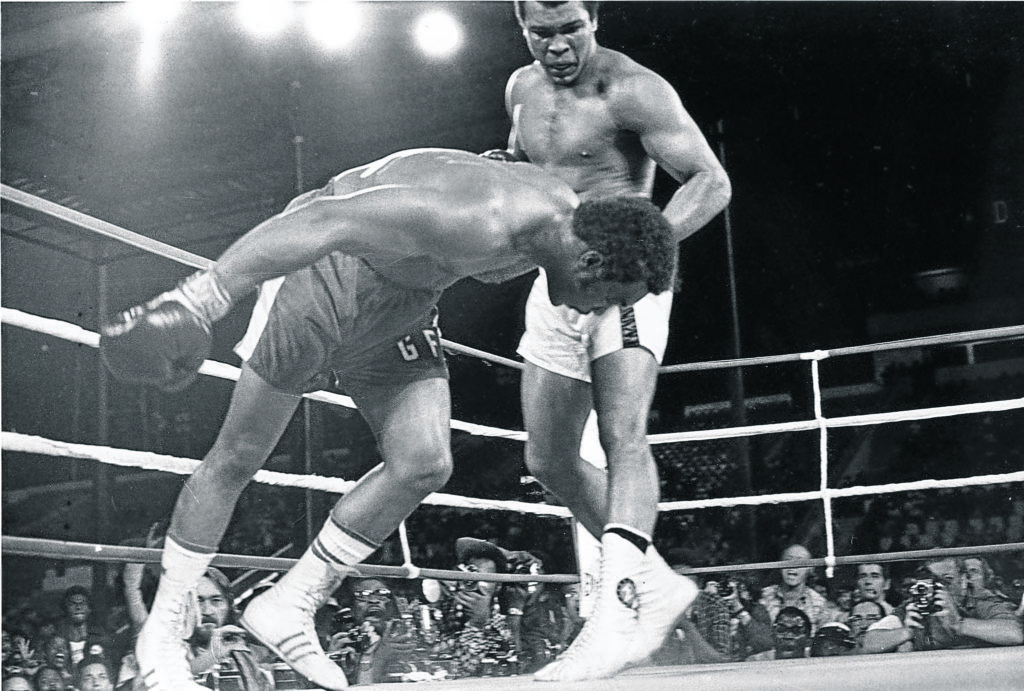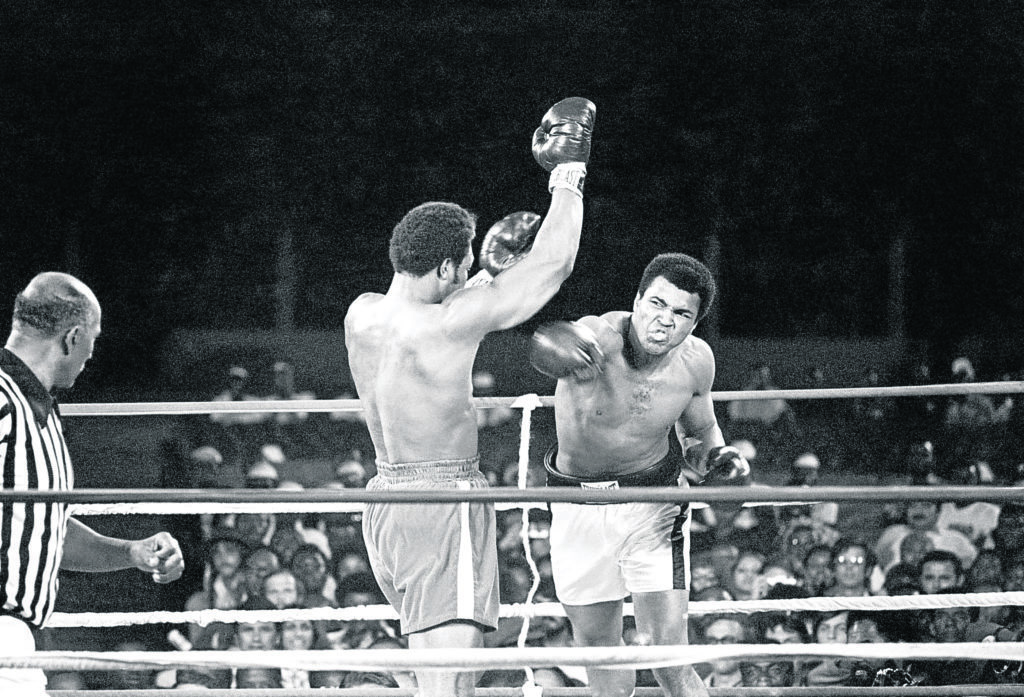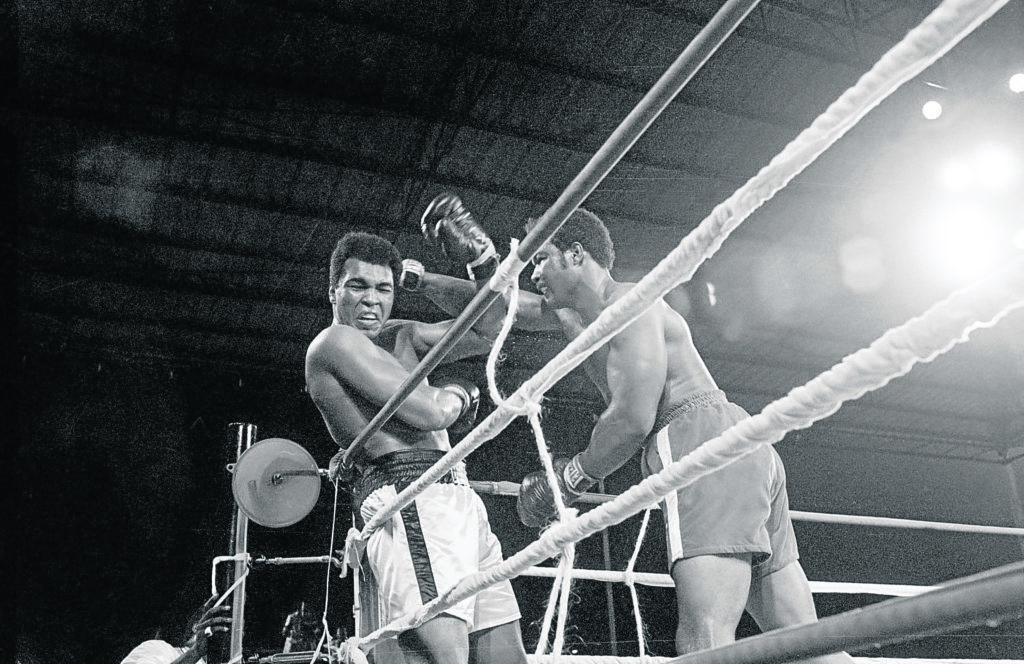
Energy Voice’s boxing theme this month made me think about my favourite fight; the Muhammad Ali v George Foreman world heavyweight fight held in Zaire in 1974, or as it’s more commonly known “The Rumble in the Jungle”.
It’s a classic. Foreman was the undisputed world heavyweight champion. He was younger, stronger and in the form of his life. Ali, a former world champion, reminded us in eight rounds why he really was the greatest.
As expected, Foreman dominated the former champ in the early stages. His haymaker punches were taking their toll on Ali who looked dead on his feet, hanging onto the ropes.
Big punches were landing on his arms and body, but importantly Ali kept his head protected. By the end of the fifth round Foreman started to tire out. Ali’s tactic, which he later called the “rope a dope”, had paid off, and he won by a knockout in the eighth round.
The oil industry has clearly taken a number of haymakers over the last four years, and there have already been a few unfortunate knockouts, but less than many of us would have predicted. Have we been doing the “rope a dope” saving our reserves for the last few rounds, or will those early punches affect us in the latter stages when our resources, resilience and commitment is also fading?
It’s becoming clearer that our opponent is tiring, with the market getting tighter and the lack of investment over the past few years, plus depleting reserves, resulting in improving oil prices. This environment is clearly a dangerous period for all of us and it can easily take us out if we don’t keep our guard up, but it does create opportunities for the strongest, most agile or cunning among us to win some points back. There are different parties in the game now with different strategies and buying behaviours offering a chance for service companies and oil companies alike to change how the match can be won.
How well have we protected ourselves throughout this punishing period? With the right plan, even the most exhausted companies can still make incremental gains, but how many of us are waiting for the next punch rather than thinking about how you can tip the balance in your favour? If you are metaphorically heading into the sixth round now, what’s your plan. How will you cope with the OPEC or US Shale haymakers? Our punches might not be as big, but an effective jab, struck repeatedly, can do as much damage, if not more.
We have lots of different punching combinations and tactics at our disposal, but we’ve not seen many of them land effectively so far in this fight. Industry collaboration is a weak punch at best; the trainer and the fighter are still not talking the same language. A weak relationship and a lack of understanding exists, and the minute one of them has the opportunity to take advantage of the other, they’ll take it. In the end, this could lose us the fight. Technical innovation could win us the contest provided we are able to land it and the referee allows it, but it’s a risky strategy to bet the contest on a few left field punches.
Instead of boxing our way out, we could change our defensive guard. This might keep us going until the end of the bout, but will we have won? Shareholders and investors don’t want to rely on a points victory; they want knockouts. The best solution, as Ali taught us in 1974, is to keep our heads and adopt a clear strategy to counter our tiring opponent. Be innovative commercially, contractually and technically. Think about all your attacking and counter attacking options, even the ones that might not have worked previously, or you were too cautious to use. The opponent has changed the game and new tactics will create opportunities. This will give us the best chance of victory, but how many of us take time to really think this through. Are most of us waiting for the next haymaker?
Let’s just hope this industry downturn is comparable to the “Rumble in the Jungle” and not “The Thrilla in Manila”; Ali’s brutal 14 round slug fest against Joe Frazier which had Ali telling his trainer by the end of the ninth round “Man, I’ve never been this close to dying”. Despite winning on points it was considered the beginning of the end for Ali.
Ewen MacLean is a director at Calash, a leading international energy consultancy with offices in Houston, Aberdeen, New York, London & Sydney
Recommended for you


